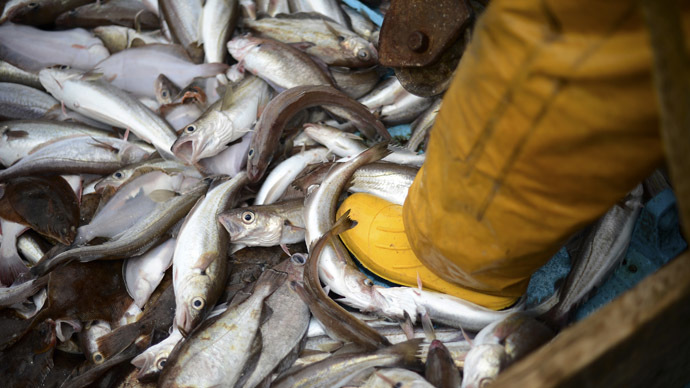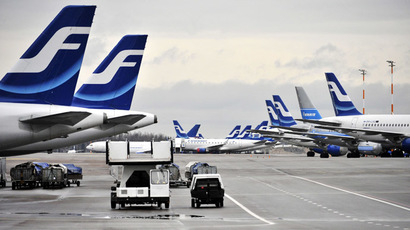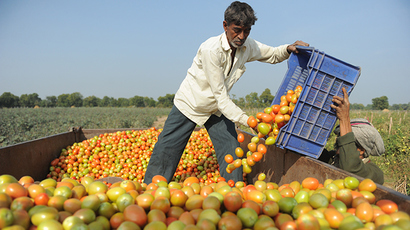British food exporters feel increasing pressure from Russian embargo

UK food firms said they’ve already started feeling the brunt of the Russian import ban on some agricultural products. British businesses are warning they would lose out if the tension ratchets up to other industries.
On August 7, Russian PM Dmitry Medvedev ordered a one-year ban on imports of beef, pork, poultry meat, fish, cheese, milk, vegetables and fruit from Australia, Canada, the EU, the US and Norway.
UK food exporters are concerned over the possible damage caused from losing sales in the Russian market.
"It will have a big impact on business," the BBC quotes Sinclair Banks, the boss of fishing and fish processing firm Lunar.
Half of Lunar’s annual turnover of £60 million comes from Russian exports.
"We've £200,000 of herring sitting at St Petersburg, we don't know if it will go through or even if it will be paid for," Sinclair Banks complained, adding that his company had already cancelled a boat exporting herring because of the sanctions.
Another food producer, cheese maker Belton Cheese is also suffering.
Managing Director Justin Beckett said the company has had to cancel orders for £30,000 worth of cheese which was due to be delivered to Russia this Monday.
"As you can imagine it's very disappointing. Russia was a very new market, about 2-3 percent of our business, but we had an expansion plan for the next two to three years," Beckett said, citing that the expansion was estimated to return up to £2 million over the next three years.
Mike Shearwood, the chief executive of fashion chain Karen Millen, said that despite his company not being connected with the food business, together with its franchise partner they are already negotiating the possible mitigation of any further sanctions that could have a “detrimental effect” on the business.
“The government may impose sanctions believing that they will impact Russia. They will hurt domestic businesses as well. They need to bear that in mind when taking any actions,” Financial Times quotes Shearwood.
Other British clothers that operate in Russia - including Marks & Spencer, Kingfisher and Burberry - haven't yet commented.
Matthew Beesley, the head of Henderson Global Investors stressed that despite current sanctions don’t affect retailers with Russian exposure, the issue may become a “problem for tomorrow” if the pressure in Russia escalates.
British high street stalwart Marks & Spencer has 41 outlets in Russia, and earns 4 percent of its profit from the territory. Kingfisher has 20 shops in Russia, and British luxury group Burberry has two stores in Moscow.
Escalating tensions with Russia threaten the eurozone recovery as a further breakdown in relations with Russia "would weaken growth in the second half of the year", Mario Draghi the President of the European Central Bank warned.













